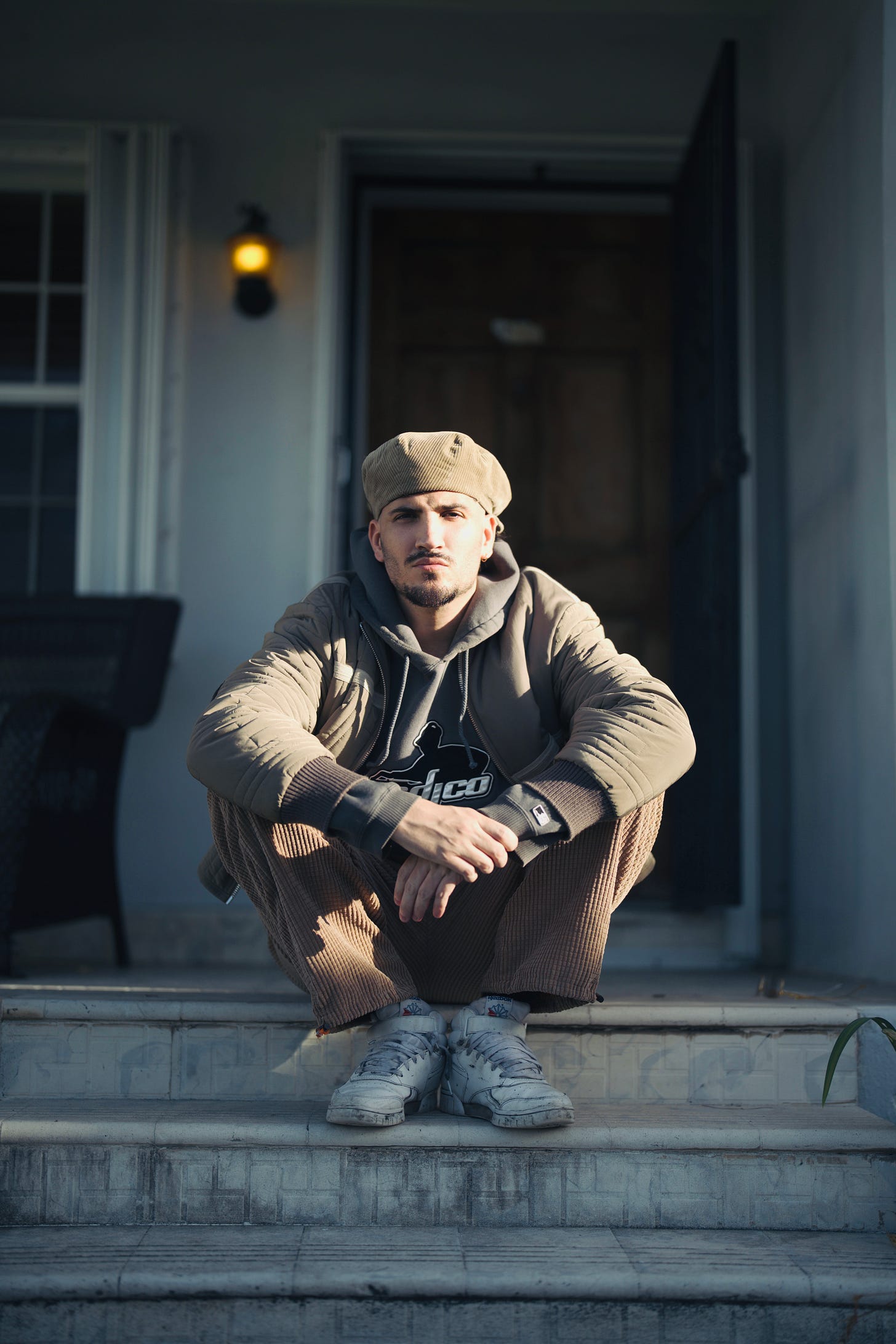Danny Daze Goes Big... Planetarium Big
a.k.a. An interview with the Miami artist about his immersive (and brazenly trend-defying) debut album, the current hype around his hometown and his need to be 100% himself.
Back in 2015, I interviewed Danny Daze (a.k.a. Daniel Gomez) for Resident Advisor, and the resulting feature is one of my favorite things I’ve ever written. At the time, the Miami native was still contending with the aftermath of “Your Everything,” a track he’d released on Hot Creations in 2011 that had not only became a smash hit, but had also unexpectedly launched him onto the Ibiza / tech house DJ circuit. The only problem was, that world wasn’t really a place where a guy who’d grown up on a distinctly Miami diet of Latin rhythms, dance-pop classics, rave music and freaky IDM and electro records from labels like Merck and Schematic felt comfortable. (For what it’s worth, the Easyjet club tourists and European bottle-service crowd didn’t necessarily appreciate his selections either.)
There was a lot more to Danny Daze’s backstory (e.g. breakdancing, baseball, tennis, teenage raves, a drug bust, house arrest, a DJ residency in Las Vegas), but eight years after we first spoke, he’s left those things—and his brief foray into the Ibiza / tech house sphere—in the rearview. (That said, anyone unfamiliar with his past should definitely read the RA piece linked above; it’s pretty wild.) Although Gomez did eventually find a lane of electronic music that was better suited to his tastes and worldview, setting up his own Omnidisc label while playing at Berghain, Dekmantel and other tastemaker-approved spots around the globe, he ultimately landed back in Miami, where he’s spent the past several years working on the biggest creative undertaking of his life.

::BLUE:: is that undertaking. A culmination of Gomez’s 24-year career, it’s his first full-length album, but it’s far more ambitious than the average dance LP. Clocking in at 92 minutes and designed as a continuous listen (preferably while the listener is blindfolded), it’s an immersive, concept-driven piece of work, one that not only largely eschews the dancefloor, but also runs counter to nearly every prevailing trend in today’s musical landscape. (One example: Although it’s available in a “normal” stereo version, which Gomez swears is “more than enough,” his preferred version of the record has been mixed and mastered in Dolby Atmos, a process that prompted him to outfit his studio with an elaborate 12-speaker set-up.)
The album alone would constitute the biggest of big swings, but Gomez didn’t stop there. Along with the music, he’s also developed a ::BLUE:: audio-visual show, one which has been specifically designed for planetariums. It’s already been screened several times in Miami, and while the words “planetarium show” might prompt thoughts of cute fractals and hippieish psychedelia, what Gomez and his collaborators have designed is far more cinematic, an “8K, three-dimensional, full 180-degree dome show that starts off extremely rudimentary and ends up in a place where you’re thinking, ‘Where am I? How the hell did we get here?’”
In a time where electronic music—and really, culture everywhere—is often experienced and consumed in 30-second increments, Gomez is taking his craft in a completely opposite direction. (Moreover, he’s doing it on his own dime, having self-funded the entire ::BLUE:: project.) With the album due to arrive late this week on Omnidisc, I asked if he’d be interested in having another chat with me, one that focused not only on his latest endeavors, but also how much things have changed during the past eight years—for him, for Miami and for electronic music in general. He agreed, and during a long video conversation last weekend, he was just as open as he was during our first interview, excitedly lifting the curtain to explain everything that went into ::BLUE:: while also reflecting on how he’s perceived by the outside world, his place in his hometown’s newly hyped music scene, his continuing passion for DJing and his hopes for the future, which may hinge on what happens with a recent health problem he’s been experiencing.



